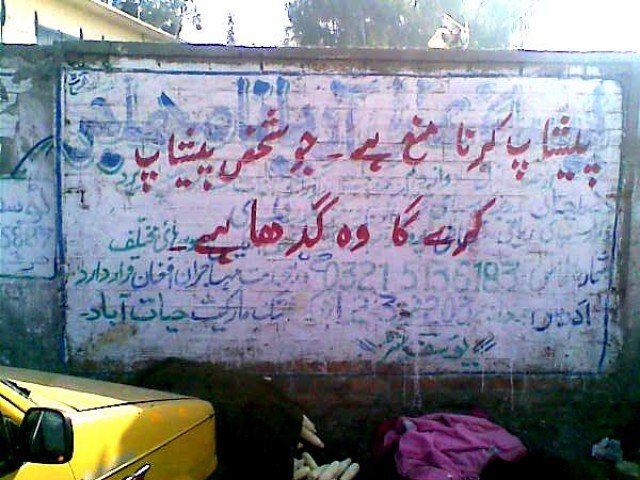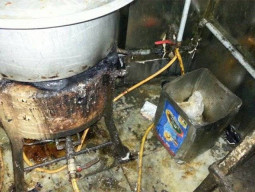
This is the stunning revelation that a two-judge bench of the Sindh High Court (SHC) wondered upon on Tuesday, during the hearing of a petition seeking facilities such as ramps for handicapped persons and public toilets.
23% population still defecates in the open, says report
The petitioner, who is the chairperson of Raah-e-Rast Trust, had stated in his pro-bono petition that the people, particularly women and children, face a lot of inconvenience due to the non-availability of public toilets at bus stops, markets, hospitals, parks and other public places.
KMC's admission
In December 2012, a legal adviser for the Karachi Metropolitan Corporation (KMC) had provided a list of public toilets to the court. According to the list, only 19 places in Karachi had public toilets. The court was told that seven other places had been identified where public bathrooms should be provided.
Meanwhile, a law officer representing the provincial government had claimed that such facilities were provided at a district level.
Therefore, the judges had assigned an unusual task to the top provincial regulatory body of lawyers, the Sindh Bar Council (SBC). SBC was directed to get the provincial law officer's claim verified through its members by inspecting the availability of public toilets in each district. The members were asked to submit their reports in this regard.
Residents will not be free to openly defecate in Sindh by 2025
During Tuesday's proceedings, a report was filed on behalf of the SBC. The council's representatives told the judges that the provincial and local government authorities had failed to set up 2,300 toilets which were required to be built across the province at public places, including bus stops and parks.
The report stated that there were no public toilets in eight districts of the province, which included Karachi's south and west districts, Dadu, Kandhkot, Ghotki, Nawabshah, Mirpur Mathelo and Mehar.
This revelation led the judges to direct the provincial and local government law officers to submit their reports regarding the state of the public toilets in each district of the province.
Headed by Justice Irfan Saadat Khan, the bench directed them to submit such reports by September 12.
Case history
The petitioner, Agha Syed Attaullah Shah, had taken the authorities to court over this important issue of the lack of toilets for the public.
Public toilet plans go down the drain
Due to the dearth of public toilets, the petitioner claimed that people were forced to relieve themselves on footpaths, playgrounds, abandoned plots, bushes and other public spaces, which pollutes the environment.
He alleged that the non-governmental organisations had repeatedly called upon the relevant authorities to take steps in this regard, yet the city government was reluctant to identify places for building public toilets.
In his plea, Shah had told the judges that there were 970 bus stops, 133 hospitals, 182 graveyards and public parks where the facility was not available. "Each of the 970 union councils in 18 towns has more than a couple of commercial plazas without public toilets. Over 133 general hospitals or clinics are also without this facility," he claimed.
Therefore, the petitioner had pleaded the court to declare that public toilets with sustainable sanitation were necessary for the health, honour and dignity of the public.


1732519298-0/BeFunky-collage-(85)1732519298-0-165x106.webp)
1732611352-0/lamar-(5)1732611352-0-165x106.webp)
1732610018-0/BeFunky-collage-(91)1732610018-0-165x106.webp)












COMMENTS
Comments are moderated and generally will be posted if they are on-topic and not abusive.
For more information, please see our Comments FAQ